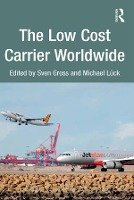Sven Gross, PhD studied Tourism Geography and Economics at the University of Trier and Spatial Planning at the University of Dortmund. He received his Masters Degree in 1998 and was a management and community consultant for several years, personal assistant to the mayor of Bad Dÿrkheim and research associate at the chair of tourism economics and management at the Dresden University of Technology. In 2004 he completed his PhD in the Department of Traffic and Transport Sciences Friedrich List at Dresden University of Technology. Since 2005 Sven has been Professor of Transport Carrier Management at the Hochschule Harz (University of Applied Sciences), Wernigerode, Germany. As of August 2008 he has been head of the tourism department in the competence center of information and communication technologies, tourism and services at the Hochschule Harz (together with Prof. Dr. Axel Dreyer), and since 2007 a member of the New Zealand Tourism Research Institute (NZTRI) based in Auckland. In 2010 Sven was a visiting professor (scholarship of the German Academic Exchange Service, DAAD) at the Auckland University of Technology. His main research areas include tourism and transport (eg airline management, cruise ship management, car rental management, transport concepts for destinations), business travel management (eg Online Booking Engines, web 2.0), event marketing and management as well as tourist market research. He has authored more than 50 publications on these subjects, including seven books. Michael Lÿck, PhD is Associate Professor and Head of Department (Tourism & Events) in the School of Hospitality and Tourism, and Associate Director for the coastal and marine tourism research program area at the New Zealand Tourism Research Institute, both at AUT University in Auckland, New Zealand. He received his doctorate from the University of Otago in Dunedin. Michael has more than ten years' work experience in the tourism industry, having worked for a large package tour operator, travel agencies, a campervan rental company, and as tour guide in Belize. He taught at universities in Germany, New Zealand, Scotland, and Canada. Michael's research interests lie in the areas of marine tourism, ecotourism, sustainable tourism, the impacts of tourism, aviation, and gay tourism. He has published in a number of international journals, is founding editor-in-chief of the academic journal Tourism in Marine Environments, and Associate Editor of the Journal of Ecotourism. Michael edited or co-edited two volumes on ecotourism, two on marine tourism, two on polar tourism and the Encyclopedia of Tourism and Recreation in Marine Environments (CABI).

